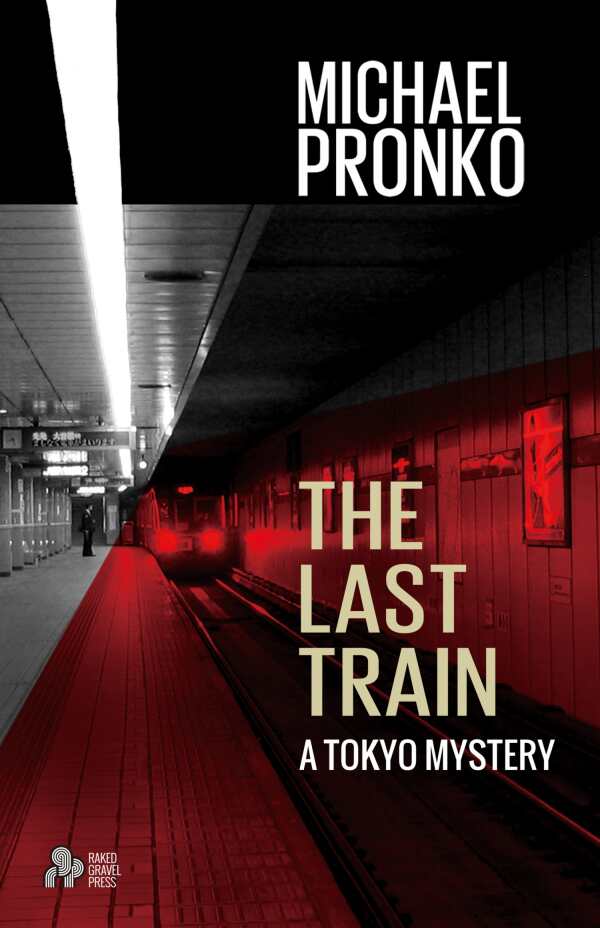
The Last Train
The Last Train is a well-paced and absorbing mystery, with quick action and a look at urban life.
In The Last Train by Michael Pronko, Detective Hiroshi Shimizu and the Tokyo homicide unit go on a thrilling hunt for a murderer of rich men. Theirs is an utterly page-turning adventure.
Having just moved back to Japan after studying abroad in America, Hiroshi works as an analyst and translator for the Tokyo police force. An older detective from the homicide division, Takamatsu, takes Hiroshi under his wing, teaching him about working on the police force as well as about having fun in urban Japan.
Together, they begin working on a case: the murder of an American businessman. They discover a connection to the cases of several other businessmen who were thrown in front of speeding trains.
The victims all have three things in common: real estate deals, consistent attendance at escort clubs, and having last been seen with a tall woman in the middle of the night. The mystery grows deeper and darker, until the question of who the real victims are arises. Hiroshi must learn to trust his instincts to answer it.
Throughout the story, Hiroshi goes through a large degree of believable character growth and development. He learns about his job, and he begins to feel reconnected to Japan and Japanese culture while still maintaining the lessons he learned in America. By the end of the novel, Hiroshi feels like a stronger, more capable character.
The plot moves quickly. Despite being complex for the detectives, the mystery unravels clearly and succinctly for the reader. This does not draw away from the tension and suspense, however. Pronko manages to achieve balance expertly. Intrigue remains high the entire time, as the detectives get closer and closer to finding out the truth behind everyone’s lies.
Each of the characters, even the tertiary ones, have a life to them: everyone is interesting, unique, and has something to offer the narrative. Pronko’s descriptions of Tokyo, Roppongi, and the surrounding areas are lively and evocative, and the cultural setting is easy to follow, no matter how familiar a reader is with Japan going in.
The novel is heavy with dialogue, which sometimes slows down the action. The same investigative questions are asked time and again as the characters meet new suspects and witnesses.
This is a work with dark undertones; it deals explicitly with murder, rape, and corruption, but does so seriously and honestly.
The Last Train is a well-paced and absorbing mystery, with quick action and a look at urban life.
Reviewed by
Shana Creaney
Disclosure: This article is not an endorsement, but a review. The publisher of this book provided free copies of the book and paid a small fee to have their book reviewed by a professional reviewer. Foreword Reviews and Clarion Reviews make no guarantee that the publisher will receive a positive review. Foreword Magazine, Inc. is disclosing this in accordance with the Federal Trade Commission’s 16 CFR, Part 255.
